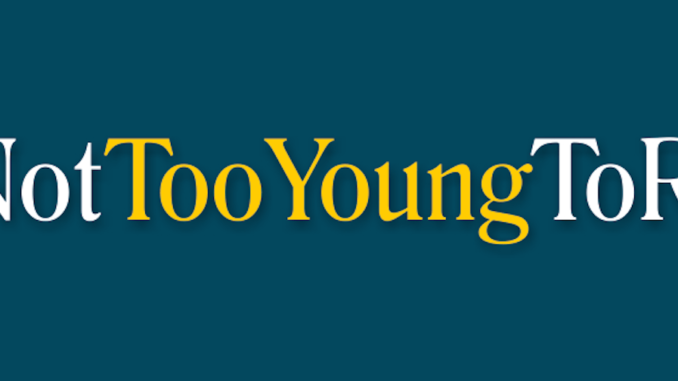
The State Houses of Assembly have an opportunity to write their names in gold as true representatives of the voice of tens of millions of Nigeria’s youth by voting in support of the age reduction and independent candidacy clauses (NotTooYoungtoRun) in the constitutional amendment bill.
In Nigeria, the eligibility age to run for the State House of Assembly is 30 years. In the aftermath of the 2015 general elections, the data released by the Independent National Electoral Commission (INEC) showed that 31 year old, Aliyu Sabiu Ibrahim emerged as the speaker of the Katsina State House of Assembly, following his victory at the polls, while 34 year old Aminu S. Abdullahi and Terkimbi Ikyange emerged as speakers in the Kaduna and Benue State Houses of Assembly respectively.
Ekiti’s Kola Oluwawole and Plateau’s Peter A. Azi, who were both 60 years old at the time they emerged, are the oldest speakers of state houses of Assembly.
Less that 10 percent of speakers of State Houses of Assembly were within the youth bracket at the time of their elections, while less than 20 percent of speakers are below the age of 40. The average age of the speakers of State Houses of Assembly in Nigeria after the 2015 election is 45 years.
Since the launch of the #NotTooYoungToRun campaign in May 2016 and the introduction of the bills to reduce the age for political candidacy and mainstream independent candidacy in the House of Representatives and the Senate, over 24 State Houses of Assembly have publicly declared support for or received position papers on the #NotTooYoungToRun bill, following a series of coordinated engagements by the #NotTooYoungToRun movement, such as through debates, rallies and media campaigns with young people at the state level.
The level of engagement, youth mobilisation and organising across the country has been unprecedented in the history of youth organising around a collective youth issue in Nigeria. The movement comprises of over 100 youth organisations drawn from different parts of the country working to promote youth issues in policy making and the constitution review process.
On July 26 and 27, 2017, the organising efforts of the #NotTooYoungToRun campaign were rewarded with the passage of the constitutional amendments to reduce the age for contesting elections and mainstream independent candidacy in the Senate and House of Representatives respectively.
The bill met the requirements for a constitutional amendment in the National Assembly as the Senate voted with 86 ‘Yes’ votes, 10 ‘No’ votes and 1 senator abstained, while in the House of Representatives there were 261 ‘Yes’ votes, 23 ‘No’ votes and two members abstained with regard to the amendment to reduce the age of eligibility to contest for president from 40 to 35 years, the governorship from 35 to 30 years and the federal House of Representative and state Houses of Assembly from 30 to 25.
According to Section 9 (2) of the 1999 Constitution of the Federal Republic of Nigeria (as amended), “an Act of the National Assembly for the alteration of the Constitution not being an Act to which section 8 applies shall not be passed in either House of the National Assembly unless the proposal is supported by the two-third majority of all members of that House and approved by the Houses of Assembly of not less than two-thirds of all states.”
Interestingly, elections for members of state Houses of Assembly produce the most number of youth candidates. The Youth Initiative for Advocacy, Growth and Advancement (YIAGA), in its Youth Candidacy Report (2015) states that 29 percent of candidates for the 2015 House of Assembly elections were with the youth bracket of 18 to 35.
The Post-Election Political Party Assessment carried out by the International Republican Institute in June 2015 indicates that for the State House of Assembly elections, there were 1,537 youth candidates in the elections out of 5,279 candidates for 991 seats across the 36 states of Nigeria. However, 196 were between the ages of 19 and 29 years, and therefore did not meet the constitutional age requirement of 30 years, thereby leaving a total of 1,341 (25 percent) qualified candidates between the ages of 30 and 35 years.
Similarly, the Inter-Parliamentary Union’s (IPU) 2016 Report on Youth Participation in National Parliament, indicates that countries with the highest youth population do not have the highest levels of youth representation. The IPU also reports that in 33 percent of countries across the world, eligibility for national parliament starts at 25 years old. However, only 1.65 percent of parliamentarians around the world are in their 20s and 11.87 percent are in their 30s.
As the constitutional amendments (including the proposals to reduce the age for contesting elections and independent candidacy) are transmitted to the State Houses of Assembly, young people are organising in the form of contacting state legislators seeking their commitment to vote in support of the #NotTooYoungToRun bill.
The State Houses of Assembly have an opportunity to write their names in gold as true representatives of the voice of tens of millions of Nigeria’s youth by voting in support of the age reduction and independent candidacy clauses (NotTooYoungtoRun) in the constitutional amendment bill.
This is the first step as the Nigerian youth aim towards reaching higher than a 10 percent representation in the political space.
Ibrahim Faruk is a senior programme officer with the Youth Initiative for Advocacy, Growth and Advancement (YIAGA), Abuja. He can be reached via fibrahim@yiaga.org. He tweets via @IbrhmFaruk
END

Be the first to comment